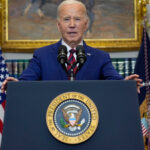
Published November 14, 2021
Like unicorns, absolute academic freedom has never existed, does not exist, and never will exist. Approximations of it develop only under rare historical circumstances, and in such cases a peek behind the curtain quickly reveals how short the reality falls of the ideal. Thus, contrary to Robert T. Miller’s claim in his extensive response to my previous piece on academic freedom, my exploration of the contradictions of this ideal was not some sort of “Marxist-inspired argument” predicting the future, but a suggestion that we stop wasting time designing unicorn farms.
Nonetheless, Miller’s response provides an opportunity to clarify and expand my discussion of the problems with the ideal of total academic freedom.
Miller chides me for having not done the reading on the subject—specifically, his prior Public Discourse essays. That I had found them unpersuasive seems not to have occurred to him. My complaint is more modest; I only wish that he had read my piece more carefully, taking his own advice about reading others: “take the time to figure out what they actually said and why, and interpret them charitably, the way you would wish to be interpreted.”
Preconditions for Communities of Inquiry
Unfortunately, Miller ignores what I wrote in order to accuse me of having “vastly over-interpreted” Alasdair MacIntyre’s observations about the practical requirements for a community of inquiry—specifically that its members must be able to trust each other to be honest and not to harm one another. Much of Miller’s piece is devoted to showing that professors who advocate terrible ideas might not act on them, or that professors behaving badly in their personal lives might still be able to competently teach and research. But I made this point, noting that professors promoting repugnant ideas often do not practice what they preach, either because they have internalized norms against the evil deeds they intellectually approve, or because they are constrained by external forces. As I put it, “advocates for the liberal case for absolute academic freedom might even boast of the success of these factors in restraining advocates of violent theories from acting on them.”
This is not, as Miller suggests, a fallback position, but an essential premise in the development of my argument, which teased out some of the contradictions and tensions in the ideal of absolute academic freedom. Thus, Miller and I both agree with MacIntyre that a community of inquiry requires that its members be able to trust each other. And we agree that an organized community of inquiry can exist even among those whose ideologies suggest that they ought to slit each other’s throats, if they can be kept from practicing what they preach.
It is on this point—how to keep the Marxist professor from massacring his bourgeois colleagues?—that my differences with Miller become clearer. Miller seems to take it for granted that there will be sufficient internal restraints (the Marxist is really a decent fellow) or external constraints (there are laws against actual Marxist revolution) to keep people from acting on ideas that would destroy the possibility of shared inquiry. Thus, the liberal value of complete academic freedom may be sustained by a liberal culture and legal regime, even as it allows intellectual challenges to itself.
But this sort of legal and cultural regime, which provides the preconditions for pluralistic inquiry, is neither historically inevitable nor obviously sustainable. Historically, liberalism and the ideal of absolute academic freedom are anomalies. Furthermore, total academic freedom has never really been realized, for even in modern liberal societies and universities there are some ideas that are taboo, or deemed too stupid to consider. Surely Miller is aware of conservatives, and even dissident liberals and leftists, who feel that they have to censor themselves, from the classroom to conferences to research and publication. We are very far from the ideal of full academic freedom—and the fault lies in the ideal, which is impossible to attain.
Finding Reasonable and Just Limits on Academic Freedom
Even those who attempt in good faith to attain the ideal will fail, for, as Miller knows, there will always be bias in the administration of supposedly neutral standards. In the discussion that instigated this debate, Robert George insisted that academic rigor should be the only standard—but whose rigor? Rigor cannot be value-neutral. In addition to the ordinary propensity to be especially critical of those we disagree with, there are also methodological disagreements that might lead a scholar to be feted in some circles and dismissed in others. Furthermore, many of the greatest thinkers in history, from Socrates to Kierkegaard to Nietzsche, would have been very poor fits for modern university life. Conversely, many who succeed according to current notions of academic rigor are intellectual hacks.
Miller might respond that the difficulty of attaining an ideal does not mean that it should be abandoned. After all, from chastity to charity it is difficult to live virtuously, but that does not mean we should stop trying. Perhaps we should similarly strive for the ideal of absolute academic freedom. However, this line of reasoning also turns Miller’s charge of unrealism back upon itself. Those of us arguing against total academic freedom are not, as he alleges, dealing in a fantasy world, but in the real one, in which academic freedom is always subject to limits. Limits on academic freedom are inevitable, and if we want them to be reasonable and just, we must make them so. We need to formulate real-world standards of academic freedom, rather than retreat into the impossible fantasy of absolute academic freedom.
It is true, as Miller emphasizes, that it is perilous to give power (in this case the power to limit academic inquiry and instruction) to fallible human beings, who might use it badly. But such perils will always be with us, for that power will always be exercised by someone. Pretending that the power to set limits on academic inquiry and instruction does not exist just means that it will be exercised informally by the hiring committee, the tenure committee, the admissions committee, the HR department and so on.
Furthermore, the question of academic freedom is not just about inquiry, but also about instruction. After all, giving positions of instruction to those with evil ideas is not harmless. Of course, keeping bad ideas out of the classroom also risks suppressing good ones, but the alternative is to implicitly teach relativism. Though Miller is wroth at the suggestion, his position is indeed one of practical relativism, even if he has non-relativist reasons for it. Miller may not be a moral relativist, but from a student’s perspective, a university that treats the philosophies of Robert George and Peter Singer as equally worthy of consideration is relativist indeed.
This highlights another problem with the idea of absolute academic freedom, which is that inquiry and instruction are what professors do as their professional duties. Thus, Miller’s distinction between speech and action becomes untenable, for speech is the action that professors are employed for. “Teach rigorously, we do not care what” is self-satirizing nonsense. A university must care about what professors teach, lest it be an incompetent and incoherent mess. The practical pedagogical relativism Miller endorses is self-refuting, insofar as it undermines the purpose of a university.
The ideal of total academic freedom is intellectual and practically unsustainable. To the extent that Miller’s cautionary case for complete academic freedom is persuasive, it is due to conservatives’ having very little power in the academy. As a minority on most campuses, conservatives (especially religious conservatives) may want whatever protection we can get. But it is not clear that the ideal of absolute academic freedom provides much practical security, except perhaps in a few rare First Amendment lawsuits. There are a multitude of ways to weed out conservatives from academia, few of which require a direct attack on academic freedom. Many do not even leave anything for the lawyers to submit into evidence. Furthermore, when there is an overt attack, the case will initially be judged not in court but by (usually leftist) university administrators. It does little good to plaintively cry “Sir, sir, I’ve been fouled” when the referee is rooting for the other team.
Responding to the Confusions Plaguing Higher Education
Much of what Miller fears will follow from restricting academic freedom is in fact what conservative and other heterodox scholars already live with. Thus, though he is correct that conservatives have little power in the academy, this may indicate that it is time to consider thinking outside the academic box.
Academic freedom as it exists means that conservatives, in exchange for a few protections for the dwindling number of tenured faculty on our side, do nothing politically as our nation’s publicly funded higher education system is turned against us and against the common good. American taxpayers spend enormous sums—both directly to state schools and indirectly to private universities that love federal student loan and grant money—to support an academic establishment that is to the Left even of most Democrats. Conservatives may lack the academic power to do much about this, but we should consider what reasonable, value-based limits on academic freedom should be.
After all, there is no virtue in citizens’ being indifferent to the content of this state-sponsored instruction. Though legislators should not micromanage colleges and universities, they have every right to exert broad influence on behalf of their constituents to ensure that publicly funded institutions fulfill the public purposes for which they receive money. That this political response might lead to abuse and error is a poor objection, because every human system and institution is subject to abuse and error.
I expect this suggestion to horrify Miller, and I invite him to propose alternatives of how to deal with the reality that academic freedom is always limited. No doubt many other conservatives would be delighted to have more practical suggestions for how we should structure academic freedom. It is, after all, possible to support a broad and generous academic freedom while rejecting the impossible ideal of absolute academic freedom. There will always be some limits on academic freedom, and it is better to be honest about who sets them and what they are than to try to wish them away. As the great percussionist and folk philosopher Neil Peart observed, choosing not to decide is still a choice.
Miller has fallen into the error, common on the more libertarian Right, of treating any power as if it were the One Ring in Tolkien’s tales. But we must deal with reality, not fantasy. The power to curtail academic freedom exists and is necessary for a coherent system of higher education. It will be used, and recruiting some hobbits to chuck it into the fires of Mt. Doom is not an option.
Nathanael Blake is a postdoctoral fellow at the Ethics and Public Policy Center.
Nathanael Blake, Ph.D. is a Postdoctoral Fellow at the Ethics and Public Policy Center. His primary research interests are American political theory, Christian political thought, and the intersection of natural law and philosophical hermeneutics. His published scholarship has included work on Jean-Jacques Rousseau, Hans-Georg Gadamer, Alasdair MacIntyre, Russell Kirk and J.R.R. Tolkien. He is currently working on a study of Kierkegaard and labor. As a cultural observer and commentator, he is also fascinated at how our secularizing culture develops substitutes for the loss of religious symbols, meaning and order.









